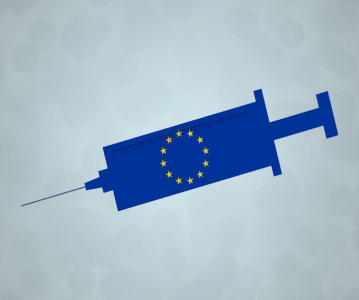Stability studies trends

Dr Ramesh Jagadeesan, Sr. Director - Analytical Development at Recipharm, speaks to CPHI Online on the trends and challenges involved with conducting stability studies for firms that supply to multiple countries, and the advantages of using a contractor.
Globalisation and stricter quality rules are changing how firms test drug stability according to Dr Ramesh Jagadeesan, Sr. Director - Analytical Development at Recipharm, who says outsourcing is the most efficient way of carrying out this vital research.
After efficacy, stability is a drug’s most important characteristic. Determining how long it stays within potency specifications during transport and storage is vital to ensuring reliable supply, planning production and deciding expiry dates.
To make this determination drug companies test their products in conditions designed to match the destination market. This, however, can be a significant challenge for firms that supply multiple countries as Karan explains.
Why do stability studies need to be market-specific?
It is important that stability studies are tailored to the market for which the product is destined. For example, in the US market, only certain products must undergo a microbiological limit test. It is possible to justify skipping this test based on the amount of water present or water activity in the final drug product.
Whereas, in the case of the European market, microbiological tests are mandatory in stability conditions. Even the limits for this test are different depending on the market.
Also, because the ICH demands different stability storage conditions for different regions, tests have to be classified into different zones depending on the temperature and humidity conditions.
Furthermore, region-specific requirements and Pharmacopeia standards differ from country to country.
Also, logistics infrastructure plays an important role in transporting the samples for analysis from the storage chambers. Some countries request that the stability study is conducted at the final packaging site.
What are the most challenging markets for which to conduct stability studies?
The challenge is not the market per se, rather the difficulty is in understanding different guidelines set by different countries and how these vary.
Korea is a good example. Korean regulators do not accept the bracketing and matrixing approach, which is a method used in the US and Europe to reduce the number of tests required. Likewise, Korean regulators require that three product batches are tested to determine the expiration dates.
While there are differing requirements, are there any trends emerging in terms of what regulators ask to be covered during stability testing?
There are some emerging patterns in the number and size of batches that regulators want. Generally, they ask for a minimum of three initial batches to be placed into a long-term stability program to assure uniformity when establishing the expiration date.
Likewise there are common demands in terms of storage conditions. Depending upon the different climatic zones, most regulators ask that tests are performed on or near 30 degrees Celsius or at exaggerated conditions.
Similarly, it is common for regulators to ask for temperature cycling and freeze-thaw studies as well as an assessment of how transportation will impact product stability.
In addition, a growing number of agencies require that, in addition to being able to determine stability, testing methods allow manufacturers to estimate the quantity of degradants and the efficacy of the container closure system.
What are the emerging trends in stability studies in terms of customer demands?Information management is a growing area where we are experiencing greater demand from customers. Many now ask to be notified via online messaging of any temperature excursions that occur during stability testing. It is also common for customers to request that a Laboratory Information Management System (LIMS) is implemented to allow for more efficient document management.
Beyond that, there is growing interest in establishing how drug ingredients and excipients interact and impact stability during early phase product development. The idea is that this information will help guide the creation of more effective, more stable formulations.
What are the advantages of outsourcing stability studies?
Given the growing complexity of the average stability study, there are numerous advantages associated with outsourcing this work to an expert partner.
Clearly there are cost advantages to working with a CDMO that has established stability chambers and is experienced at maintaining such operations.
CDMOs with experienced staff are also beneficial. Drug companies that outsource stability testing are able to work with dedicated experts who have capacity to develop tailor-made solutions to any issues that occur.
More generally, outsourcing stability analysis will provide time for in-house scientists to concentrate on research and development activities of niche products rather than on routine testing.
In addition, contract testing labs will not show any bias when it comes to approving the product. Testing will be done in a strict GMP environment.
What factors do sponsors need to consider when choosing a contractor for stability studies?
Choosing a CDMO to conduct stability studies on your behalf is a complex process. The ideal approach is to identify the necessary criteria and review each potential supplier against this.
There are basic criteria like ensuring the contract testing lab operates its facility under cGMP conditions and has instruments complying with 21 CFR guidelines. Similarly, contract testing labs should provide various ranges of temperature and humidity storage conditions. They must also continuously monitor and maintain the stability chambers to ensure they possess all the necessary security features.
However, there are other more performance-related considerations.
For example, studies should be performed with quick response times to enable the sponsor to file the drug product on time. Therefore, it is sensible to determine how responsive the contractor is to requests and whether they have a good communication strategy in place.
Likewise, transparency is vital. If an out of specification result is logged it is important that the contractor notifies the customer in a timely fashion.

Related News
-
News Patients vs Pharma – who will the Inflation Reduction Act affect the most?
The Inflation Reduction Act brought in by the Biden administration in 2022 aims to give better and more equitable access to healthcare in the USA. However, pharma companies are now concerned about the other potential costs of such legislation. -
News CPHI Podcast Series: What does the changing US Pharma market mean for industry and patients alike?
In this week's episode of the CPHI Podcast Series Lucy Chard, Digital Editor for CPHI Online is joined by James Manser to discuss the political and market changes in the US pharma field. -
News CPHI Barcelona Annual Report illuminates industry trends for 2024
The CPHI Annual Survey comes into it’s 7th year to report on the predicted trends for 2024. Over 250 pharma executives were asked 35 questions, with their answers informing the industry landscape for the next year, spanning all major pharma marke... -
News Which 10 drugs are open to price negotiation with Medicare in the USA?
The Centres for Medicare & Medicaid Services, under the Biden administration in the USA, has released a list of the 10 drugs that will be open to price negotiations as part of the new legislation under the Inflation Reduction Act (IRA). -
News EU Medical Devices Regulation causes unintended disappearances of medical devices for children, doctors state
Doctor groups and associations have appealed to the EU to correct the EU Medical Devices Regulation law that may cause unintended shortages of essential drug and medical devices for children and rare disease patients. -
News 10 Major Drug Approvals So Far in 2023
Last year, 37 novel drugs were approved by the FDA, this was a high number for such a category, and covered many fields including oncology, demonstrating how promising further research is, and how it is only continuing to build. To date, there are alre... -
News Detecting Alzheimer's disease with a simple lateral flow test
A novel rapid diagnostic test for early-stage Alzheimer's disease has been developed using a biomarker binder from Aptamer Group along with technology from Neuro-Bio, the neurodegenerative disease experts. -
News CPHI Podcast Series: outsourcing and manufacturing trends
Listen to the CPHI Podcast Series this June to hear Gil Roth of the PBOA speak with Digital Editor Lucy Chard about the biggest trends and topics to watch in pharma outsourcing and manufacturing at the minute.
Position your company at the heart of the global Pharma industry with a CPHI Online membership
-
Your products and solutions visible to thousands of visitors within the largest Pharma marketplace
-
Generate high-quality, engaged leads for your business, all year round
-
Promote your business as the industry’s thought-leader by hosting your reports, brochures and videos within your profile
-
Your company’s profile boosted at all participating CPHI events
-
An easy-to-use platform with a detailed dashboard showing your leads and performance







